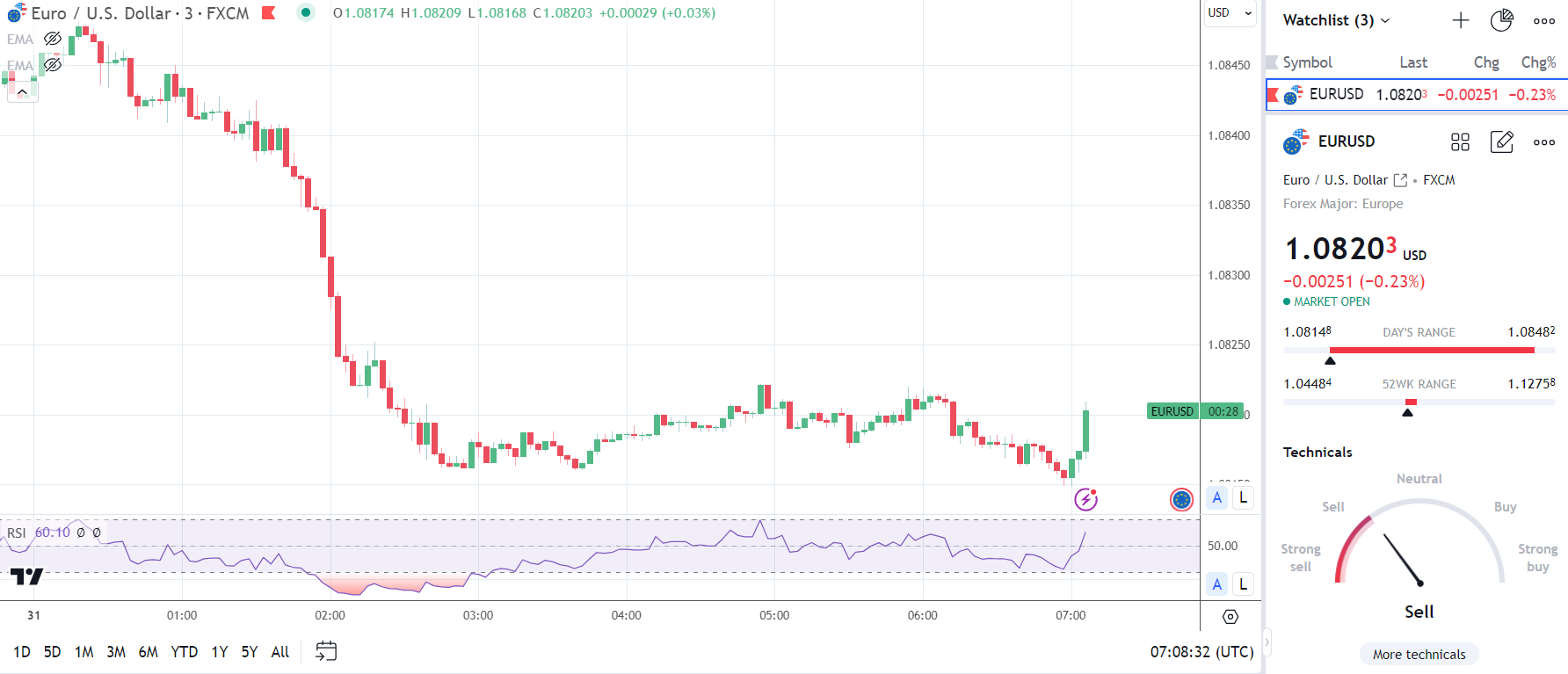
Unexpected decrease in German retail sales sends further recession indicators, potentially influencing the Eurozone economy.
The spotlight is on the German economy on Wednesday, with early attention in the European session on German retail sales.
In December, German retail sales witnessed an unexpected 1.6% month-on-month downturn. This followed a 2.4% month-on-month drop in November. Economic experts had anticipated a 0.7% month-on-month increase in retail sales for December.
The data on retail sales in Germany indicates a decline in demand-driven inflation, further reinforcing predictions of a potential Q1 recession and increasing speculation about an ECB rate cut in April. German private consumption, which accounts for over 50% of the economy, plays a significant role in this scenario.
Preceding the release of German retail sales figures, the EUR/USD surged to a peak of $1.08482 before dropping to a minimum of $1.08158. Subsequently, in reaction to the data, the EUR/USD declined to a low of $1.08148 before rebounding to a high of $1.08206. By Wednesday, the EUR/USD had decreased by 0.23% to $1.08203.

The upcoming release of German unemployment and inflation data is set to capture investors' interest. If inflation figures turn out to be weaker than anticipated, it could strengthen speculations about an ECB rate cut in April. Forecasts indicate a potential decrease in the German annual inflation rate from 3.7% to 3.0% in January.
Conversely, a tightening labor market could bolster wage growth, which is a concern for the ECB. Economists are predicting that the German unemployment rate will hold steady at 5.9% in January.
Additionally, attention will be directed towards the release of the ADP employment change numbers for January and Q4 employment costs from the US. Improvement in labor market conditions and higher-than-expected wage growth data could alleviate expectations of a Fed rate cut in March.
While these statistics will garner investor interest, the primary events of the session will revolve around the Fed interest rate decision, rate statement, and press conference. Economists are anticipating that the Fed will retain interest rates at 5.50%, shifting the focus towards the rate statement and press conference.

Subscribe to our daily newsletter and get the best forex trading information and markets status updates
Trade within minutes!
Comment (0)